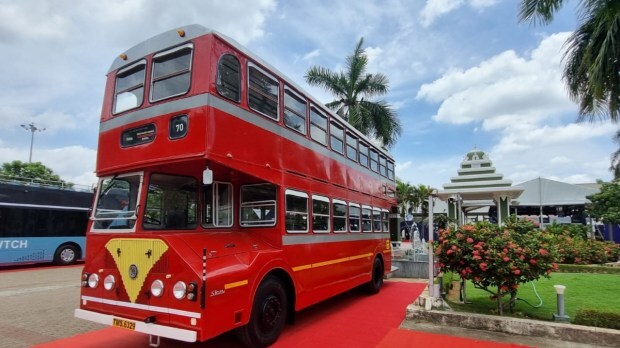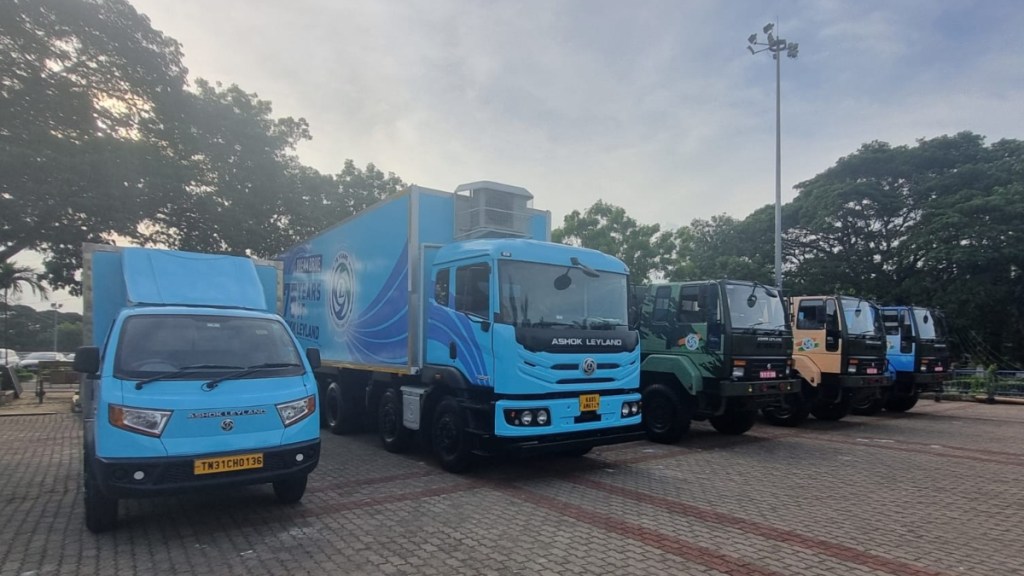Ashok Leyland recently celebrated its 75th anniversary, and the commercial vehicle maker’s ambitious target to be amongst the top 10 CV makers globally is just getting stronger.
Dheeraj Hinduja, Chairman, Ashok Leyland spoke to Financial Express, “When I look at the global market, our categorisation of global top 10 we don’t need to be present in North America, America, or for that matter in Europe as well. As I mentioned you will see quite aggressive electric buses in the European market. And that will create a footprint for US, Europe, UK. And beyond that I think if you see the rest of the world, the growth rates in those markets are far faster as well. Indonesia, Vietnam and some of the Middle Eastern markets as well. The rate of growth is much faster. And it makes sense for us to keep an eye on those markets and plan for those markets as opposed to go into very competitive and high-end markets where it might take many more years to break through.”
Shenu Agarwal, MD, Ashok Leyland added that while the global CV market is growing at 2-3 percent CAGR, India is going to grow three to four times. “We have a good base in India, which will give us good volumes. And then globally, definitely, we are going to do much better. We haven’t specified a timeline yet to get into top 10. But that’s our vision. So every 3-4 years, we will set some targets.”
In fact, when one looks at the company’s recent strategy of acquiring Switch Mobility to expedite its EV play in 2021, the same year it got an investment of $18 million (Rs 150 crore) from US-based Dana Inc. It also plans to invest around Rs 4,000 crore to Rs 5,000 crore in its EV arm. Then there is the OHM International Mobility for E-MaaS (electric-mobility-as-a-service) play. The company aims to leave no stone unturned to meet its targets.
Future of diesel and alternate fuel
A lot of alternative energy mix is being explored across vehicle categories. Be it two-, three-, four-wheeler or commercial vehicles. There is growing consensus for transitioning to cleaner fuels, but does that count as the end of diesel commercial vehicles?
Hinduja believes otherwise, “I feel that diesel still has quite a long way to go. We need to take into account the economics and cost factors when you look at all the different alternative fuels as well. Whilst clean energy clean fuels are critical for our development purposes, I feel that transition time will take possibly a little longer than what everyone is currently looking at. And in that respect, we will continue to focus on diesel but always trying to make sure that at the end of it the way we put the vehicle together we have put target of net zero by our 100th year.”
At the company’s 75th anniversary event in Chennai, Ashok Leyland also unveiled a hydrogen fuel cell bus, which it will supply to NTPC for trials in the Leh-Ladakh region. On the other hand, it is also working on a hydrogen-IC truck with Reliance.
Ashok Motors to Ashok Leyland: A brief history
The company originally called Ashok Motors was founded in 1948 by Raghunandan Saran, an Indian freedom fighter from Punjab. It initially begin assembling and manufacturing Austin cars from England. By 1954, it got approvals to manufacture comet trucks and Tiger Cub lightweight bus from Leyland, the first ever British Leyland products manufactured in India.

In 1975, the collaboration ended with British Leyland, but it continued to assist in technology till the 1980s. It was then in 1987, Land Rover Leyland got taken over by the JV between the Hinduja Group, Iveco, part of the Fiat Group. In 2007, the Hinduja Group bought out Iveco’s indirect stake in Ashok Leyland.


















